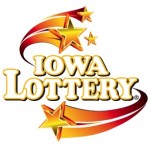Iowa Lottery

- Site URL:www.ialottery.com
- Days Played:
The Iowa Lottery Review
The Iowa Lottery launched its first scratch ticket sales at the Iowa State Fair in 1985. Since then, the lottery has created numerous millionaires, funded state infrastructure and education, and become a central part of Iowa’s gaming culture. One of the most famous wins occurred on June 13, 2012, when 20 cereal factory workers won a $241 million Powerball jackpot and chose the lump sum option, splitting the prize evenly.
Today, the Iowa Lottery offers national draw games like Powerball and Mega Millions, as well as local in-state games, online promotions, and scratch tickets available at more than 2,400 retailers.
Local Iowa Lottery Games
Pick 3 is one of Iowa’s daily draw games with 13 drawings every week—one on Sunday and two on every other day. Players select three digits between 0 and 9 and can choose from several wager types, including Straight, Box, Straight/Box, Front Pair, and Back Pair. Wagers begin at $0.50, with payouts up to $500.
Pick 4 operates under similar rules, requiring players to choose four digits from 0 to 9. Wager types include Straight, Box, Straight/Box, and Pair plays, with top prizes reaching $5,000. Both Pick 3 and Pick 4 are drawn twice daily from Monday to Saturday and once on Sunday.
Iowa Cash Game, also called the $100,000 Cash Game, is a classic 5/35 lotto-style draw game. Players pick five numbers and win $100,000 for a full match. The game is drawn six nights a week (Monday through Saturday) at 6:28 PM. Secondary prizes are awarded for matching two to four numbers, and players may purchase tickets for up to 24 consecutive drawings.
Interstate Iowa Lottery Games
Powerball has been part of the Iowa Lottery since 1992 and remains one of its biggest draws. With three weekly drawings on Monday, Wednesday, and Saturday, jackpots start at $20 million and often climb into the hundreds of millions. Iowa has had several big Powerball winners, including the famous group win in 2012. Players can choose the Power Play option for $1 more to multiply non-jackpot prizes.
Mega Millions was added to the Iowa Lottery in January 2010. The game offers two drawings per week on Tuesday and Friday. Jackpots begin at $20 million, with secondary prizes reaching up to $5 million with the Megaplier. While Iowa has not had a Mega Millions jackpot winner yet, thousands of players have won lower-tier prizes.
Lotto America replaced the now-retired Hot Lotto in 2017. The game includes multiple states, with tickets costing $1 and an optional $1 All Star Bonus multiplier. Drawings occur every Monday, Wednesday, and Saturday. Players select five numbers from 1 to 52 and one Star Ball from 1 to 10. The jackpot starts at $2 million.
Frequently Asked Questions
Can I buy Iowa Lottery tickets online?
Not at this time. Iowa Lottery tickets must be purchased in person. However, players can use the Iowa Lottery app to check numbers, scan tickets, and find nearby retailers.
How old do I need to be to play the Iowa Lottery?
You must be at least 21 years old to purchase or redeem Iowa Lottery products, including scratch tickets and draw games.
What are the most popular Iowa Lottery games?
Powerball, Mega Millions, Lotto America, Pick 3, Pick 4, and the $100,000 Cash Game are among the most played. Scratch tickets are also extremely popular throughout the state.
How do I claim a prize in Iowa?
Prizes under $600 can be claimed at any Iowa Lottery retailer. Prizes over $600 must be claimed by mail or at an Iowa Lottery office. Prizes of $250,000 or more must be claimed in person at Lottery Headquarters in Clive.
Do Iowa Lottery tickets expire?
Yes. Draw game prizes must be claimed within 90 days of the drawing date. Scratch tickets must be claimed within 90 days of the announced end-of-game date.
Are Iowa Lottery winnings taxed?
Yes. Winnings over $5,000 are subject to federal withholding (24%) and state withholding (5%).
Where does Iowa Lottery money go?
Iowa Lottery proceeds support programs like the Iowa Veterans Trust Fund, state infrastructure, and the General Fund for public services and education.